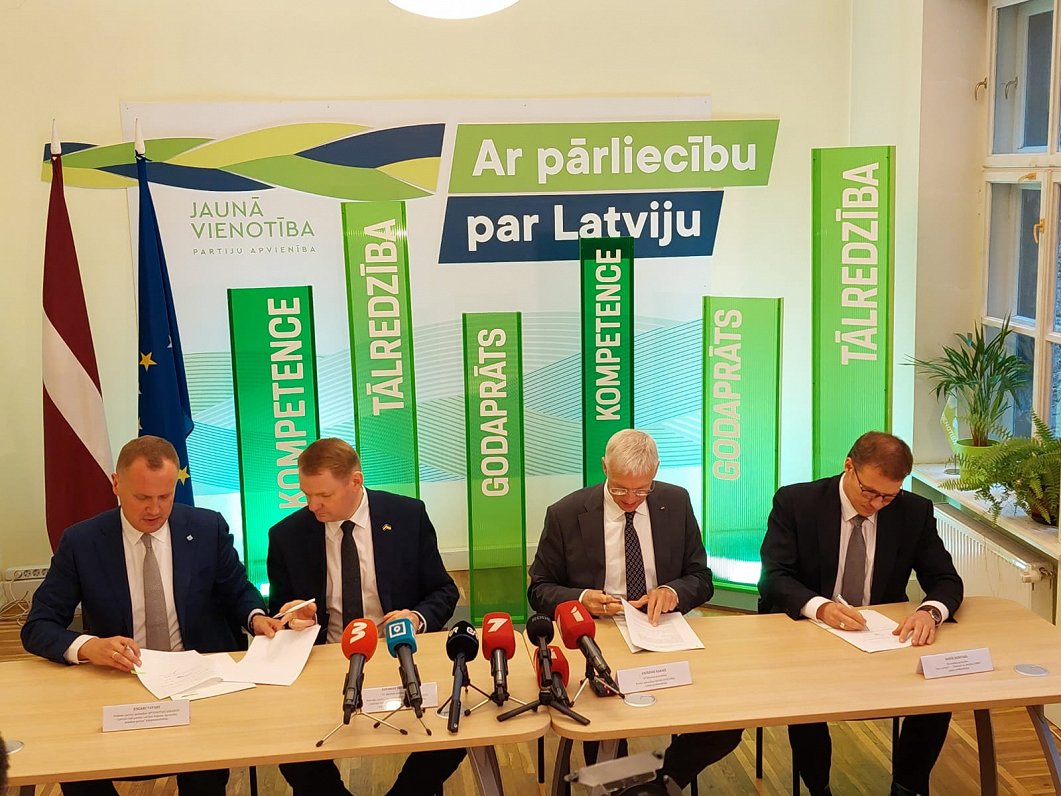It is planned that the three will sign the documents on Wednesday, December 14, at 9:00, in the Saeima, when a vote to formally approve the new four-year administration is planned.
The government's declaration says that the goal of the Krišjānis Kariņš-led government will be the transformation of the economy for a better life with security and prosperity to the people of Latvia.
The declaration states that “the human being is the main value of Latvia, so we must all mobilize for the kind of economic growth that will improve life for ourselves and future generations. In order to implement a broad economic transformation, work must be reoriented in five closely related areas: security, education, energy, competitiveness and quality of life."
The declaration [original text attached] runs to nearly 50 pages and begins with an acknowledgment that following Russia's invasion of Ukraine, the world is a very different place.
"The government is aware that the changing conditions affect Latvia's situation, and will do everything possible to ensure the country's security and socio-economic development," the declaration says.
The main buzzwords of the declaration are "economic transformation". Indeed, every priority area is described in terms of its potential to contribute to this "economic transformation".
Energy is described as "the motor of economic transformation", education is "the basis of national economic transformation", commercial competition is "the guarantor of economic transformation", improved quality of life "will ensure sustainable economic transformation", and so on.
"For a long time, the Latvian economy relied on relatively cheap Russian gas imports to produce both heat and electricity. Russia's war in Ukraine has finally shattered the illusion that Latvia can continue on its usual path in the field of energy. Therefore, it is necessary to develop such an energy sector that provides for sufficient, predictable and price-competitive energy provision for future economic development and a clear plan for how Latvia will achieve the binding EU climate goals," the declaration says.
"The work of the government must be carried out in close cooperation with social and cooperation partners and non-governmental organizations in order to work towards a common goal – strengthening the independence of our country, economic transformation and the quality of life of the population. This will be achieved with good cooperation between the society and the government," the declaration promises.
An accompanying cooperation agreement lays out the coalition's ministerial appointments:
Prime Minister – Arturs Krišjānis Kariņš (JV)
Defense Minister – Ināra Mūrniece (NA)
Foreign Minister – Edgars Rinkēvičs (JV)
Economics Minister – Ilze Indriksone (NA)
Finance Minister – Arvils Ašeradens (JV)
Interior Minister – Māris Kučinskis (AS)
Education and Science Minister – Anda Čakša (JV)
Climate and Energy Minister – Raimonds Čudars (JV)
Culture Minister – Nauris Puntulis (NA)
Welfare Minister – Evika Siliņa (JV)
Transport Minister – Jānis Vitenbergs (NA)
Justice Minister – Inese Lībiņa-Egnere (JV)
Health Minister – Līga Meņģelsone (AS)
Environmental Protection and Regional Development Minister – Māris Sprindžuks (AS)
Agriculture Minister – Didzis Šmits (AS)
Saeima elections took place on October 1.
























